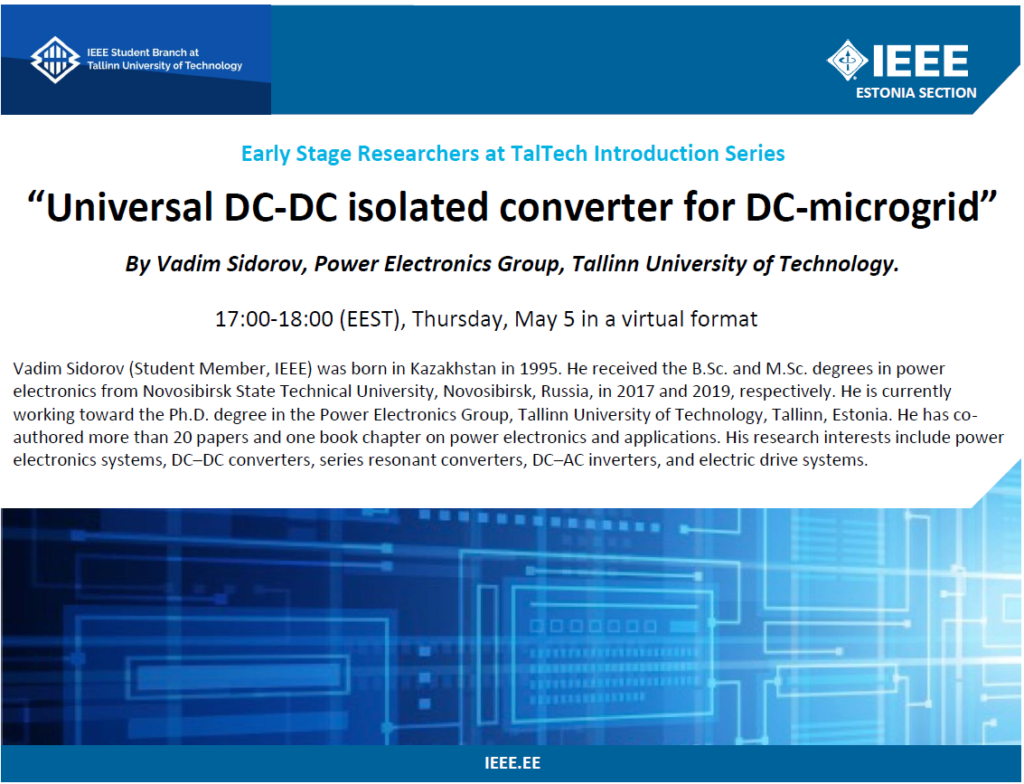Early Stage Researchers at TalTech Introduction Series.
In this series we invite early stage researchers (Ph.D. students) from various research groups at Tallinn University of Technology to discuss why they choose to pursue a career in research and to introduce us to their research topic.
Our first talk will be titled “Universal dc-dc isolated converter for dc-microgrid” presented by **Vadim Sidorov** from The Power Electronics Group at Tallinn University of Technology.
17:00-18:00 (EEST), Thursday, May 5 in a virtual format: https://teams.microsoft.com/l/meetup-join/19%3ab672d2e692a44ba9bed41e70af6957b5%40thread.tacv2/1651589970472?context=%7b%22Tid%22%3a%223efd4d88-9b88-4fc9-b6c0-c7ca50f1db57%22%2c%22Oid%22%3a%228f4b1707-4f23-4255-81de-0b74bcce052d%22%7d
Bio:
Vadim Sidorov (Student Member, IEEE) was born in Kazakhstan in 1995. He received the B.Sc. and M.Sc. degrees in power electronics from Novosibirsk State Technical University, Novosibirsk, Russia, in 2017 and 2019, respectively. He is currently working toward the Ph.D. degree in the Power Electronics Group, Tallinn University of Technology, Tallinn, Estonia. He has co-authored more than 20 papers and one book chapter on power electronics and applications. His research interests include power electronics systems, dc–dc converters, series resonant converters, dc–ac inverters, and electric drive systems.
Abstract:
The proposed isolated buck-boost series resonant dc‑dc converter contains two full-bridge hybrid switching cells capable of half-bridge operation. This feature is regarded as topology morphing control. Voltage buck regulation requires special modulations applied to the primary-side hybrid switching cell. In contrast, voltage boost regulation requires special modulations for the secondary-side hybrid switching cell. Combining the topology morphing control with the buck-boost regulation capability, a novel dc-dc converter operating in six different modes was derived. Moreover, the converter is capable of bidirectional operation. The presentation describes the influence of the topology morphing control on the dc voltage gain of the converter, which results in three boost and three buck modes. The six modes are described and equations for the converter dc voltage gain are provided. Based on the selected design guidelines for the power part and the control system, a 350 W prototype was designed and built. Experimental results confirm the theoretical expressions for the converter dc voltage gain. Experimental efficiency is provided in a wide input voltage range for both energy transfer directions. Operating points with the highest thermal stress of components are analyzed with corresponding power loss breakdown calculations confirming the measured thermal results.
